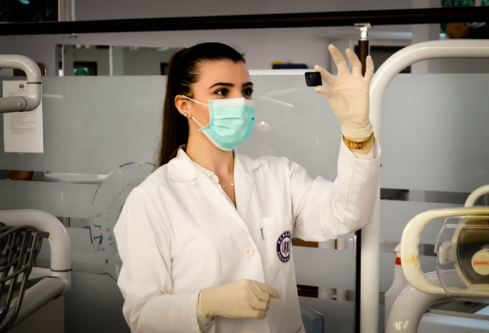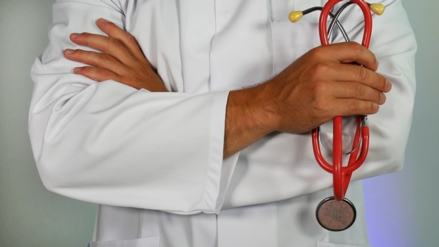What are the signs and qualifications of a competent surgeon? The journey of a surgeon begins with a bachelor’s degree from a credible university. They can also receive their bachelor’s degree from a pre-medical program. Getting into a medical school can be tough due to the high competition. To maintain the credibility of their college, the medical schools seek applicants with a high-grade point average. These students must also have a high score in the MCAT or Medical College Admission Test.

(Source)
Students have to go through a four years intense course, including lectures and laboratory. This course also includes a supervised clinical practice. After completing their medical school, a student willing to pursue their career as a surgeon should complete their residency training. The residency training will involve specialty courses. For instance, after completing their general education of five years, an aspiring surgeon chooses the residency in vascular surgery. That is if they want to treat vascular conditions. The residency usually requires six years of courses.
1. Academic Skills
A competent surgeon should have superior academic ability. Science subjects are compulsory to become a surgeon. To become a general surgeon, they should study for four years in a medical college. They will continue their training with five years of residency in a desired specialized subject. A physician can become a surgeon after taking one to four years of residency. Surgeons should maintain their consistency and interest in the residency subject for years.
2. Other Mental Characteristics
During their residency, the surgeon develops their skills to multitask. For instance, surgeons should concentrate on different technical and physical aspects of the operation. They must know how to watch the vital signs of patients while performing their surgery. A surgeon should have problem-solving capabilities as well. Especially when the condition becomes too dangerous and tough, they should maintain their focus and make effective decisions. For instance, when a patient unexpectedly starts bleeding, a surgeon knows the methods to stop it. Delays can cause life-threatening consequences.
3. Physical Abilities
A surgeon has the stamina and strength to perform tasks during extensive hours. Their surgeries may extend due to various reasons. Therefore, they must have the ability to perform incisions without affecting the patients and need superior manual dexterity. They must also have a clear vision. Stitching and incision require close and proper vision and concentration.
4. Communication Skills
The surgeon will also have great communication skills. They have the skills to accurately communicate with patients, record their histories, and answer their questions before or after the surgery. Explaining the instructions to the patient can be challenging.
Patients have little knowledge about the condition and the procedure. Therefore, a surgeon needs to be more comprehensive. Not only that, they should have the ability to instruct the procedure to the healthcare workers. Having teamwork skills will help them perform the surgery in a well-organized manner.
5. Character Traits
Competent surgeons know how to tackle new challenges. Learning new technologies and skills is a must. Since the field of surgery is consistently adopting new technology, they should be aware of the latest methods and procedures. They also have leadership qualities and take responsibility for their patient’s outcomes.
It is important to stay cool and level-headed while performing surgery. Furthermore, they know how to empathize with their patients and their families. Their focus should be on helping the patients.

(Source)
6. Leadership Qualities
Surgery includes a team of surgeons and caretakers. Major operations may also contain anesthesiologists, different surgeons, nurses, physician assistants, and others. There should be a leader for the lineup to keep them together and focused on achieving successful outcomes.
Having a qualified surgeon with leadership qualities in a team will ensure that everyone is on the same page. A surgeon with leadership qualities knows each individual in their team, their weaknesses and their strengths. Therefore, they can utilize each team member in the right place. They evaluate the situation, create a plan, and make their team follow the plan to achieve the desired results.
7. Collaboration
Surgery might look like a solitary task, but it includes communication with various physicians and other healthcare professionals. You need to understand the importance of collaboration in the success of your surgery. Therefore, you need to effectively collaborate with the team before, during, and after the surgery. Other than collaborating with the healthcare workers, a surgeon should also keep their patients calm and comfortable.
How to Choose a Competent Surgeon
Usually, a doctor, after the diagnosis of your condition, will recommend a surgeon. However, you have a choice to select other surgeons by
- Checking reviews on the internet
- Visiting their clinic and discussing your problem
- Talking to the previous patients of that surgeon, asking a friend to recommend you a surgeon
Signs of a Competent Surgeon: Conclusion
If you want to consult with a competent surgeon for your vascular condition, you can contact Dr. Norman Chideckel at 212-993-6133 at the Vascular Surgery and Vein Center, where you can discuss your venous problems.
As a highly qualified surgeon, Dr. Chideckel is capable of performing Sclerotherapy, Endovenous Laser Ablation, Venous Ultrasound, and other similar venous procedures.




